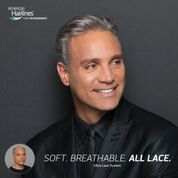1- Heat tools
According to Melanie Pellegrini, a John Frieda stylist, heat is one of the most prominent reasons why your hair might be falling out. Hot styling tools, such as your hairdryer, curling wand and straighteners, can make your hair dry, prone to breakage and consequently more likely to fall out. The Viviscal ambassador and celebrity stylist Neil Moodie explains why: “When too much strong, dry heat is applied to the hair it will weaken the hair shaft and, at its worst, it can burn the hair off.”
Solution: Control the heat
2- Over-dyeing
One of the most immediately obvious causes of hair loss is dyeing your hair too often. “When hair is over processed”, explains Moody, “it will generally snap off and break due to hair being damaged by the chemicals for too long. This causes the hair to completely lose its elasticity.”
Solution: Take a break
3- How often you brush your hair
“The most common mistake women make these days is that they don’t brush their hair enough,” Moodie reveals. “Hair has a lifespan of approximately seven years and on average we lose around 120 hairs a day to make way for new ones to grow. If you don’t brush your hair then these hairs won’t loosen out.”
Solution: Get the right equipment
4- A change in season
“Both the summer and winter months can be really damaging to the hair,” says Moody, “and most of the problems are to do with hydration. Sun and water can be harmful, leading to faded colour, split ends and a brittle, dry texture. Hopping in and out of a chlorinated pool can strip colour and treatments right out of the hair and cause it to look dull and dehydrated.
“Research has also discovered that hair loss can be seasonal for some people. Around 10 per cent of a person’s hair can go into a resting phase called Telogen, when hair can fall out. Women apparently experience slightly higher rates of Telogen during the month of July, which, in turn, sees the effect of hair falling out in mid-October or November.”
Solution: Get a holiday trim
5- How you wear your hair
If you constantly tie your hair up, in a ponytail for example, you could be damaging your locks when tightly securing the band, while also making hair loss around your crown and temples more noticeable. Hair extensions also harm your hair in this way, often to a greater degree, as Moody reveals: “Hair extensions can damage the hair follicle by constantly causing excess tension on the hair shaft. This can lead to traction alopecia [hair loss relating to pulling forces] that often leaves you with fine, fluffy hair, or very little hair at all.”
Solution: Change your style
6- Lifestyle factors
Ironically, a traumatic situation such as hair loss is often triggered by times of stress – meaning the condition can keep you in a vicious circle. This is because trying circumstances raise the levels of cortisol, the so-called stress hormone that is responsible for your fight or flight response, which can distort your natural hair cycle of growth and loss.
Thinning hair can also be a sign of Vitamin D and B12 deficiency or a lack of protein in your diet. The latter is especially noteworthy as “the protein keratin provides the strength and structure of hair”, explains Moodie.
Solution: Use supplements
7- Pregnancy and menopause
Hormone changes from pregnancy can not only play havoc with your skin, they also have an effect on your hair. When you are pregnant, the glow your skin seems to have is mirrored in how glossy and thick your hair tends to be. Unfortunately, post-pregnancy, it can feel like it is falling out at an unprecedented rate.
Menopause can affect your hair in a similar way. “With ageing, nearly everyone has some hair loss and the rate of hair growth slows,” explains Moody. “Hair strands become smaller, have less pigment and many hair follicles also stop producing new hairs. So the thick, coarse hair of a young adult eventually becomes thin, fine, light-coloured hair.” This process is accelerated in premenopausal women, where the consequent fall in female hormones – especially estrogen that is important in promoting hair growth – coupled with the rise in testosterone can cause hair to thin and not regenerate.
Solution: Don’t panic and talk to a doctor
Source: http://www.harpersbazaar.co.uk/
Learn more: www.hairreplacementservice.com
Twitter: twitter.com/AlbanyHRS_LLC
Instagram: instagram.com/hair.replacement.services


Hi! I am a robot. I just upvoted you! I found similar content that readers might be interested in:
http://www.harpersbazaar.co.uk/beauty/hair/news/a41274/why-is-my-hair-falling-out/